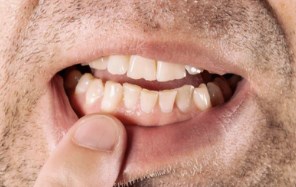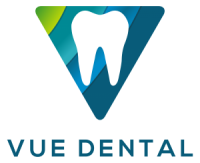Dry mouth, also known as xerostomia, is a condition that occurs when the salivary glands are unable to produce enough saliva in the oral cavity. We know that saliva is an important constituent that keeps the oral environment healthy by flushing out all the debris from the mouth. Also, saliva is necessary for proper digestion, as it releases digestive juices into the oral cavity. How dry mouth can hurt teeth. Moreover, dry mouth leads to a dominant amount of dental damage.

Most people deal with xerostomia once or twice in their lives. However, if it becomes chronic, then it should not be left untreated. General dentistry offers various treatments that can cover up this damage. To know the right treatment for you, do visit your dentist at once.
Damage to the Teeth Due to Dry Mouth
Dry mouth and teeth erosion, in general, dry mouth occurs due to dehydration or breathing dry air, as with the habit of snoring. However, it may sometimes become a long-term issue, which may be due to some underlying problem such as salivary gland infection or diabetes.

Decreased production of saliva can result in damage to the dental structures. Saliva protects against acid erosion by clearing off and neutralizing the acid produced in the mouth. It washes away the accumulated debris and restores minerals in the mouth. Chronic dry mouth can affect oral health adversely. Some of the dental issues that can result are:
1) Dental decay: As food remnants, harmful acids, plaque are not washed off regularly by saliva, dental decay becomes common.
2) Gingival diseases: Due to the accumulation of plaque and tartar surrounding the gums, the gingival disease becomes a common issue. It is very harmful to oral health because it can result in the loose tooth, decay in the tooth roots, and even tooth loss.
3) Erosion: The harmful acids in the mouth can remove the protective layer on the tooth. As the enamel layer gets removed, the tooth becomes vulnerable to decay and root canal treatment. Due to erosion, the dentine layer gets exposed, leading to extreme sensitivity in the oral cavity.
4) Dental staining: Enamel erosion and increased accumulation of food debris and plaque pose a greater risk of dental staining.

Treatment for Dry mouth and supporting treatment for dental damage
There are many treatments available that help in restoring the smile and health of the teeth damaged because of the dry mouth. There are various factors associated that help in deciding the required treatment. Some of the options are getting dental restorations done, dental crowns or veneers, gingival treatment like root planing and scaling. Some treatment options that can help in preventing the dental damage or alleviate the xerostomia itself are:
- Consuming plenty of fluids and water and stay hydrated.
- Taking over-the-counter salivary substitutes.
- Sugar-free chewing gum can help in stimulating the salivary glands resulting in the production of saliva.
- Using a humidifier that helps in incorporating moisture into the dry air.
- Using medical aids that help against the snoring habit.
- Brushing and flossing twice a day, keeping the focus on oral health and maintaining cleanliness.
Which treatment is right for you depends upon the reason you are affected with the dry mouth. Also, it depends on the damage that occurred to your dental structures. For getting a clear picture, it is essential that you visit your dentist and get yourself checked clinically.
